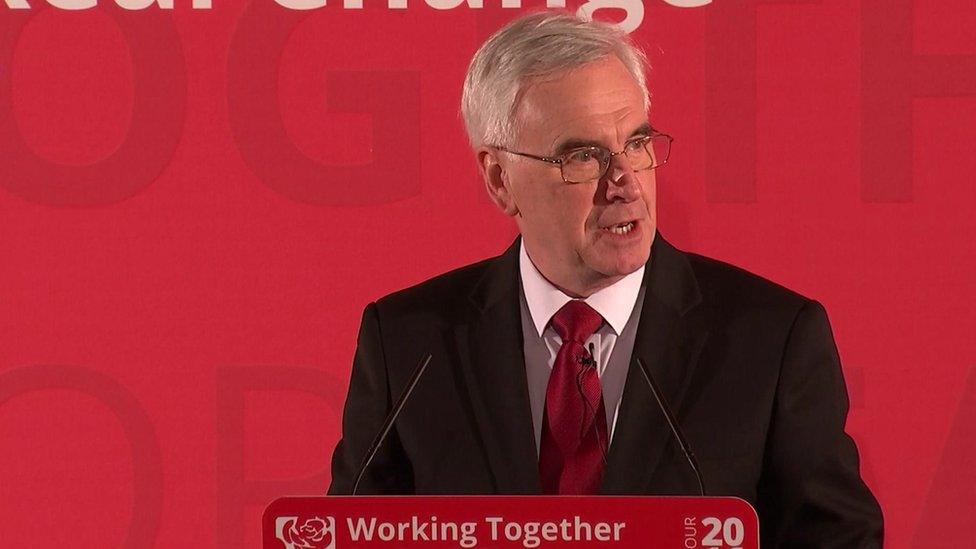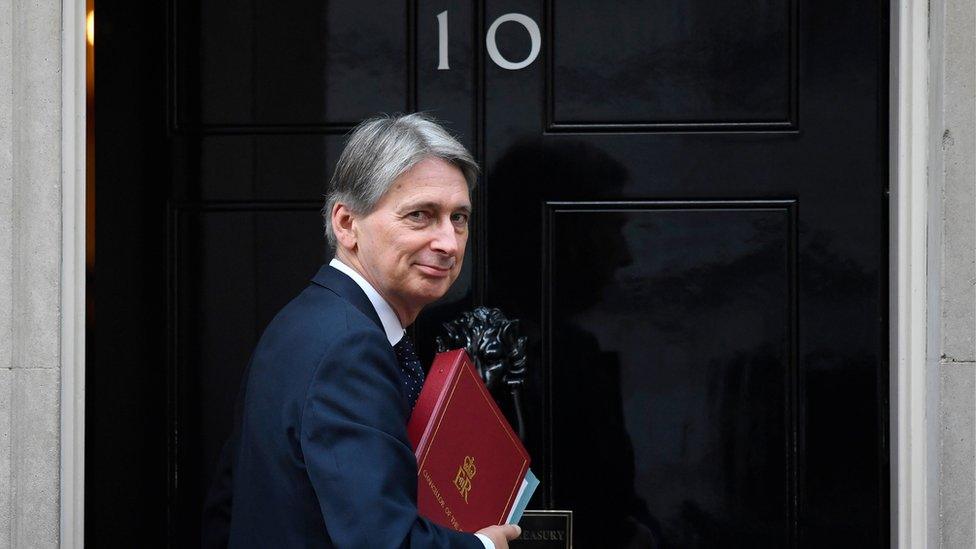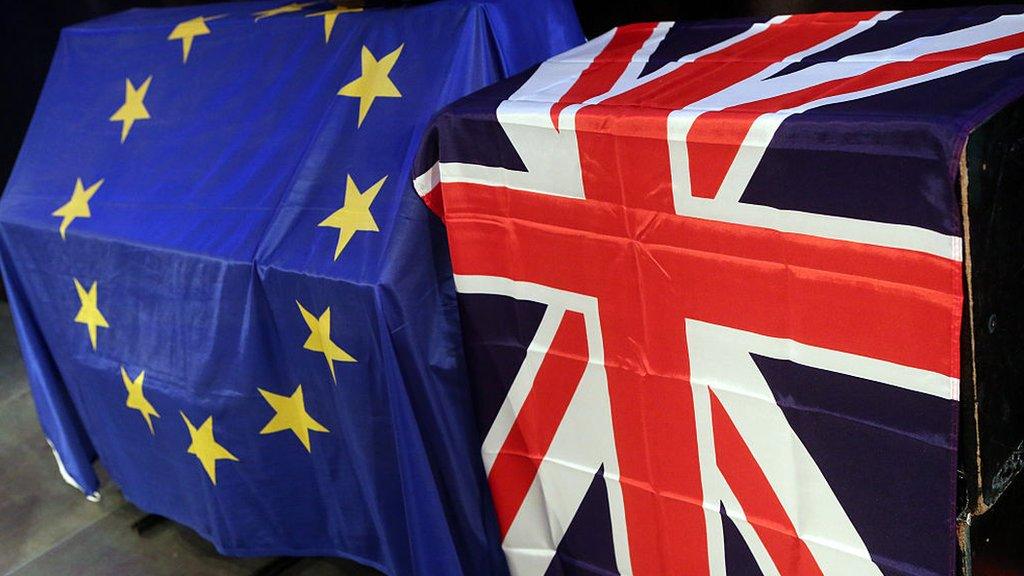Government is failing UK workers over Brexit - McDonnell
- Published

The government's "shambolic" approach to Brexit is failing to equip the UK economy for leaving the EU, shadow chancellor John McDonnell has said.
Mr McDonnell accused Chancellor Philip Hammond of being isolated from cabinet colleagues and said he was too "weak" to make Brexit a success.
He also said Labour would not vote to block Brexit or push for a second referendum.
Treasury minister David Gauke said Labour had "zero" economic credibility.
In a speech in central London, Mr McDonnell accused ministers of plotting a "closed-minded Brexit" that "works only for bankers and the rich, instead of one that's based on fairness and works for the rest of us".
Setting out Labour's position ahead of the Autumn Statement - to be made next Wednesday - he said the government's approach will "continue to undermine the ambitions of working people", he said.
Mr McDonnell said: "We need a credible fiscal framework that supports Brexit; we need actual support for those in work on low and middle incomes; and we need secure and properly funded public services.
"We want to see an end to austerity, with the NHS and social care properly funded and ESA (employment and support allowance) and Universal Credit cuts reversed.
"We want to see an end to tax giveaways for the wealthy. And we need a serious commitment from government to invest across the whole of our country."
Labour, Mr McDonnell said, would "offer a positive, ambitious vision instead of leaving the field open to divisive Trump-style politics".
"This means we must not try to re-fight the referendum or push for a second vote and if Article 50 needs to be triggered in Parliament Labour will not seek to block or delay it."

Analysis

Tom Bateman, BBC political correspondent
Since the EU referendum, the Treasury has steered away from the tougher deficit reduction rules imposed by former Chancellor George Osborne.
It has chosen instead to speak of a "pragmatic" approach to balancing the books, given what Philip Hammond described as the "turbulence" that Brexit may bring.
But his Labour opponent today condemned this approach as weak, arguing the government must go further and end austerity rather than postpone it.
Mr McDonnell also called for a focus on borrowing to create jobs and infrastructure - a policy he has previously said would go alongside a rule to balance day-to-day taxation and spending.
Labour knows its task is to present itself to voters as credible on the economy, as the battle lines are set out before the first major economic announcement of Theresa May's government next week.

Chief Secretary to the Treasury David Gauke said Labour had "zero credibility when it comes to the economy".
"They drove Britain to the brink of bankruptcy last time, opposed everything we did to clear up the mess - and now all they offer is a recipe for economic ruin.
"Ordinary working people would pay the price for Jeremy Corbyn's fantasy economics."
Green Party joint leader Caroline Lucas also attacked Mr McDonnell, accusing him of a "capitulation" over Article 50, which formally begins Brexit talks.
"The government should not be able to ride roughshod over Parliament - and MPs should be demanding more details from ministers before standing aside and letting them pursue Brexit entirely on Tory terms," she said.
'Act decisively'
It comes as the Institute of Directors called on Mr Hammond to "act decisively" and use the Autumn Statement to introduce tax breaks to boost investment.
It released survey figures indicating business confidence had declined in recent weeks, with 50% of the 1,071 respondents asked between 12 and 27 October saying they were pessimistic about the economy over the next 12 months. Some 30% said they were optimistic.
The institute's director general Simon Walker said: "This is a moment for the government to act decisively to make it easier for firms to expand and find more opportunities.
"We know that there isn't a limitless source of funds, so we urge the chancellor to make tax changes that incentivise investment, alongside targeted infrastructure investment."
- Published30 December 2020

- Published28 March 2017

- Published8 November 2016